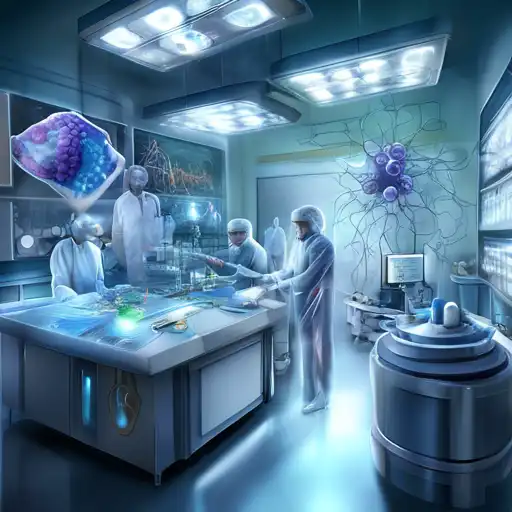Introduction to Nanotechnology in Medicine
Nanotechnology, the science of manipulating matter at the atomic and molecular scale, is setting the stage for a revolution in medicine. With its ability to operate at the same scale as biological molecules, nanotechnology offers unprecedented opportunities for diagnosis, treatment, and prevention of diseases. This article explores how nanotechnology is becoming the next big thing in medicine, promising to transform healthcare as we know it.
The Promise of Nanomedicine
Nanomedicine, the application of nanotechnology in healthcare, is poised to offer solutions to some of the most challenging medical problems. From targeted drug delivery systems that minimize side effects to nanorobots that can repair damaged tissues, the potential applications are vast and varied. The precision and efficiency of nanotechnology could lead to more effective treatments with fewer side effects, marking a significant leap forward in patient care.
Current Applications of Nanotechnology in Medicine
Today, nanotechnology is already making its mark in several areas of medicine. Some of the most notable applications include:
- Drug Delivery: Nanoparticles are being used to deliver drugs directly to diseased cells, reducing the impact on healthy cells and improving treatment outcomes.
- Diagnostic Tools: Nanotechnology enables the development of highly sensitive diagnostic devices that can detect diseases at their earliest stages.
- Regenerative Medicine: Nanomaterials are being explored for their potential to support tissue regeneration and repair.
- Cancer Treatment: Nanotechnology offers new ways to target and destroy cancer cells without harming surrounding healthy tissue.
Challenges and Ethical Considerations
Despite its promising potential, the integration of nanotechnology into medicine is not without challenges. Issues such as the long-term effects of nanoparticles on the human body, ethical concerns regarding human enhancement, and the high cost of nanomedicine treatments must be addressed. Ensuring the safety and accessibility of nanotechnology-based treatments will be crucial for their successful adoption.
The Future of Nanotechnology in Medicine
Looking ahead, the future of nanotechnology in medicine is bright. Researchers are exploring innovative applications, such as nanorobots that can perform surgeries at the cellular level and smart implants that monitor health in real-time. As nanotechnology continues to evolve, it will undoubtedly play a pivotal role in shaping the future of medicine, offering hope for treatments that were once considered impossible.
For more insights into the future of healthcare technology, explore our articles on Future Health Tech and Innovative Medical Treatments.
Conclusion
Nanotechnology in medicine represents a frontier of innovation with the potential to revolutionize healthcare. By enabling precise, efficient, and minimally invasive treatments, nanotechnology is set to become the next big thing in medicine. As research progresses and challenges are overcome, we can expect to see nanotechnology playing an increasingly central role in improving health outcomes worldwide.
